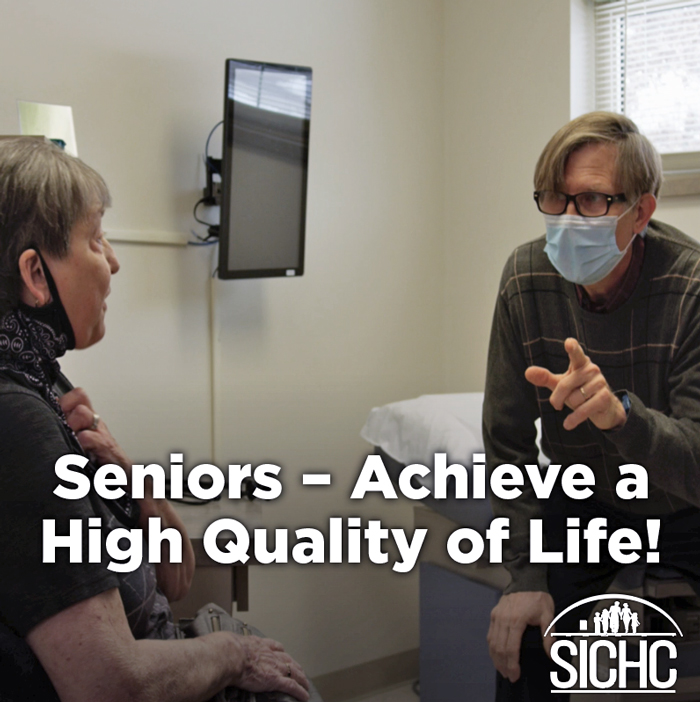Seniors – Achieve a High Quality of Life!

By Curtis Thill, M.D.
There are many humorous and not-so-humorous anecdotes about growing old, many dealing with health issues that can emerge as we age. As a long-time physician in the Crawford County region, I do know for certain that our bodies and our needs change as we age.
If you’re a senior (or are a caregiver for a senior), what does this mean for you?
When I see patients and families, I always try to encourage them to directly engage in taking charge of their health. We often are too passive about our health, which can directly impact our quality of life and how we feel physically, emotionally, and mentally. Each of these play a vital role in really enjoying life, even as we may be reaching our senior years.
A big issue at any age is maintaining healthy blood pressure. When I see people in my office, some can get defensive – they may not want to take medication, or they may view admitting they have a blood pressure challenge as a personal failure or vulnerability of some sort.
Here’s an important fact: in the United States – including our region of southern Indiana – high blood pressure (also known as hypertension) is quite common. The condition emerges from a variety of sources, including factors we inherit from our parents and issues that emerge simply as a result of growing older or as we experience stress and worry.
Oftentimes elevated blood pressure can occur as a result of what we eat. Trends in our area include eating a lot of foods high in fat with added sugar. To be healthier, especially as we grow older, it is good to consider how we can eat more foods that promote good health. These, of course, include more fruits, vegetables and whole grains.
Eating those types of foods can help maintain healthy levels of blood pressure, but we need more. All of us need to work on maintaining some sort of regular exercise. Simply walking at a brisk pace for 30 minutes or more three to four times a week can have a good impact on our overall health and help to prevent elevated blood pressure (or hypertension).
But there’s one critical fact we need to consider: diet and exercise by themselves sometimes do not provide the whole solution to high blood pressure, especially as we age (or have other complications). Medication to directly treat elevated blood pressure is often required to get high blood pressure down to a healthy level.
When this option is discussed, sometimes I hear patients protest. They may say, “but I feel fine,” or “everyone in my family has high blood pressure.”
The fact is that hypertension is called the “silent killer” for a reason. Untreated high blood pressure can lead to many adverse health consequences that no nobody wants. These include a higher risk of stroke or heart attack, and issues where your once-healthy kidneys or other organs can start having serious issues that limit your options and lower your quality of life.
When I talk about getting engaged in your health, that includes using a remote blood pressure cuff to track your blood pressure yourself. If you already have a hypertension diagnosis, there’s a good chance you can get one for free. Watch a short video I made at this link for more information: https://bit.ly/DrThill-takecharge
Find a healthcare provider whom you can partner with and start to raise your quality of life today!
Board-certified in family medicine, Curtis Thill, MD has practiced in the Crawford County region for more than 30 years.
